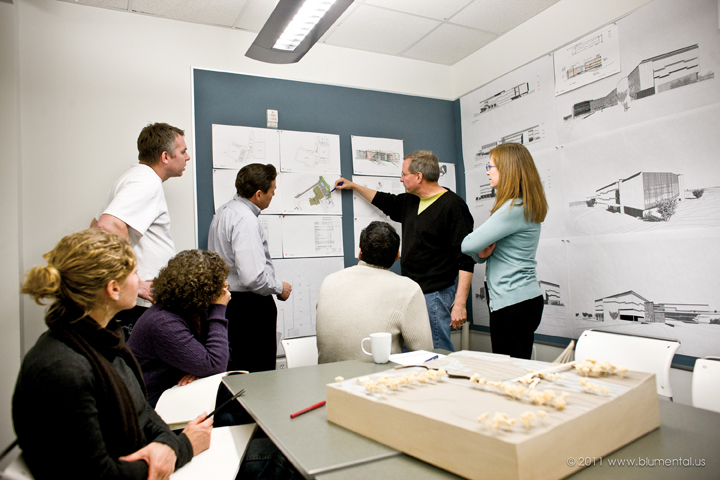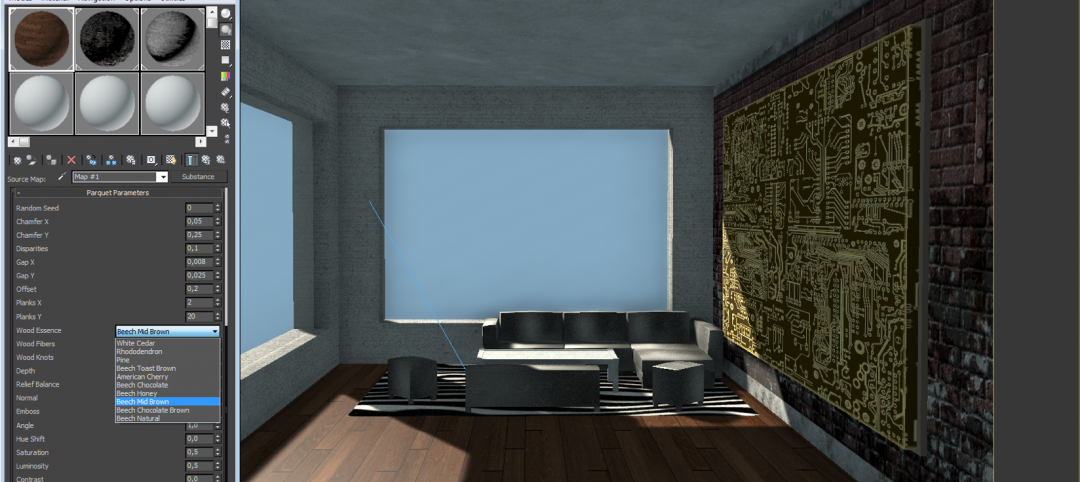At 65 employees, MHTN Architects is one of the largest architecture firms in Utah, which it has been serving from its base in Salt Lake City since 1923. That devotion to service applies not only to the many public and private buildings it has designed throughout the Beehive State, but also to the firm's commitment to the social well-being of the people of Utah.
For example, MHTN worked with the Salt Lake CAP Head Start Program in leading the design and construction of two apartment units for a Head Start classroom serving the city's immigrant population. More recently, MHTN volunteers replaced the landscaping at the Safe Harbor Crisis Center, a women and children's shelter in Kaysville. The firm has outreach programs with Habitat for Humanity, the LDS Church Humanitarian Foundation, Rotary International, Envision Utah, and Kiwanis-Felt Recreation Center.
At the professional level, MHTN gives its employees paid staff time to serve on numerous AIA Utah committees. The firm's CEO, Dennis H. Cecchini, AIA, is president-elect of AIA Utah.
MHTN has also made its mark as a leader in sustainability. It was the first company headquartered in the state to join the U.S. EPA Climate Leaders program, and it was an active participant in Utah's 2010 Clear the Air Challenge, to reduce GHG emissions. The firm recently remodeled its corporate office to LEED-CI Gold standards, the first for any Utah-based design firm.
BEST AEC FIRMS TO WORK FOR 2011 WINNERS
Chapman Construction/Design
EYP Architecture & Engineering
Gensler
HMC Architects
MHTN Architects
The firm is an AIA/CES provider whose professional development program is built around nine core values: design, respect, client service, empowerment, accountability, teamwork, environmental responsibility, technical expertise, and community service.
Look for a more extensive report on MHTN in an upcoming issue of BD+C.
Related Stories
| Dec 13, 2010
Energy efficiency No. 1 priority for commercial office tenants
Green building initiatives are a key influencer when tenants decide to sign a commercial real estate lease, according to a survey by GE Capital Real Estate. The survey, which was conducted over the past year and included more than 2,220 office tenants in the U.S., Canada, France, Germany, Sweden, the UK, Spain, and Japan, shows that energy efficiency remains the No. 1 priority in most countries. Also ranking near the top: waste reduction programs and indoor air.
| Dec 7, 2010
Are green building RFPs more important than contracts?
The Request for Proposal (RFP) process is key to managing a successful LEED project, according to Green Building Law Update. While most people think a contract is the key element to a successful construction project, successfully managing a LEED project requires a clear RFP that addresses many of the problems that can lead to litigation.
| Dec 7, 2010
Blue is the future of green design
Blue design creates places that are not just neutral, but actually add back to the world and is the future of sustainable design and architecture, according to an interview with Paul Eagle, managing director of Perkins+Will, New York; and Janice Barnes, principal at the firm and global discipline leader for planning and strategies.
| Dec 7, 2010
Green building thrives in shaky economy
Green building’s momentum hasn’t been stopped by the economic recession and will keep speeding through the recovery, while at the same time building owners are looking to go green more for economic reasons than environmental ones. Green building has grown 50% in the past two years; total construction starts have shrunk 26% over the same time period, according to “Green Outlook 2011” report. The green-building sector is expected to nearly triple by 2015, representing as much as $145 billion in new construction activity.
| Dec 7, 2010
USGBC: Wood-certification benchmarks fail to pass
The proposed Forest Certification Benchmark to determine when wood-certification groups would have their certification qualify for points in the LEED rating systemdid not pass the USGBC member ballot. As a result, the Certified Wood credit in LEED will remain as it is currently written. To date, only wood certified by the Forest Stewardship Council qualifies for a point in the LEED, while other organizations, such as the Sustainable Forestry Initiative, the Canadian Standards Association, and the American Tree Farm System, are excluded.
| Dec 7, 2010
Prospects for multifamily sector improve greatly
The multifamily sector is showing signs of a real recovery, with nearly 22,000 new apartment units delivered to the market. Net absorption in the third quarter surged by 94,000 units, dropping the national vacancy rate from 7.8% to 7.1%, one of the largest quarterly drops on record, and rents increased for the second quarter in a row.
| Dec 7, 2010
Hot rumor: Norman Foster designing Apple’s new campus
Lord Norman Foster, reportedly has been selected to design Apple’s new campus in Cupertino, Calif. If the news is true, Foster is a good match for Apple say experts. Foster built his celebrity by marrying big gestures to technological wizardry. And, unlike some starchitects, he has glommed onto the environmental revolution—something Apple has made a point of embracing, too.
| Dec 7, 2010
10 megacities of the near future
With Beijing, Shanghai, and Mumbai already on the global radar, where can the next wave of construction be found? Far beyond China, India, and even Brazil it’s predicted. The world’s next future megacities could include Istanbul, Turkey; Ho Chi Minh City, Vietnam; and Khartoum, Sudan, among others. Read about these emerging and little-known behemoths.








